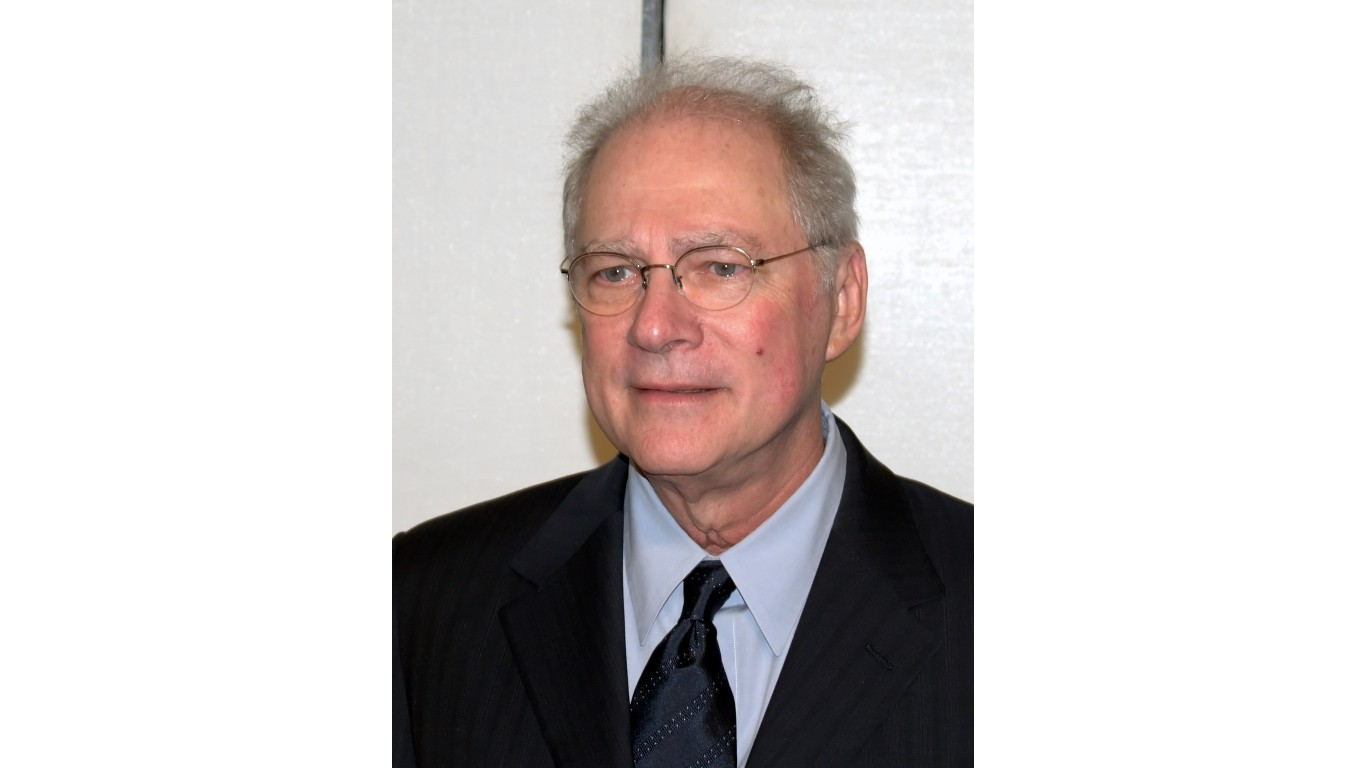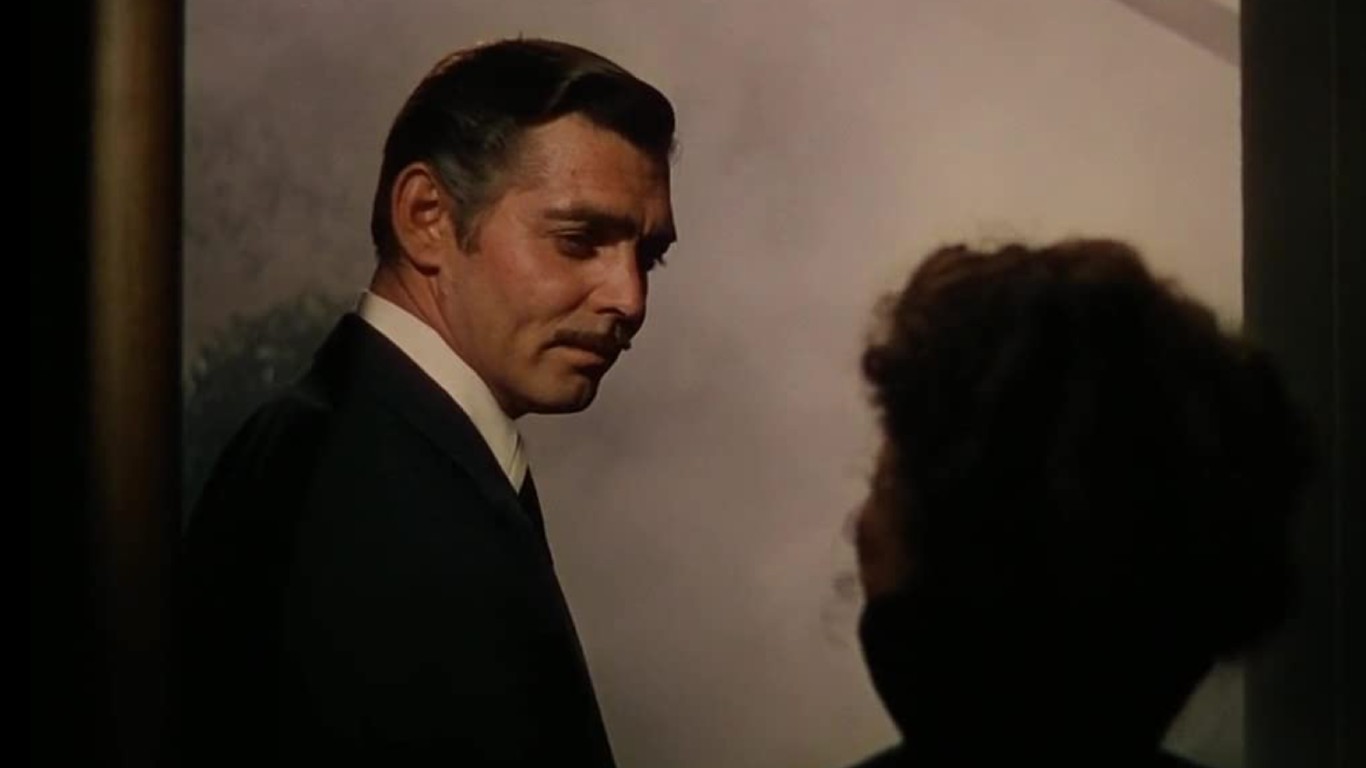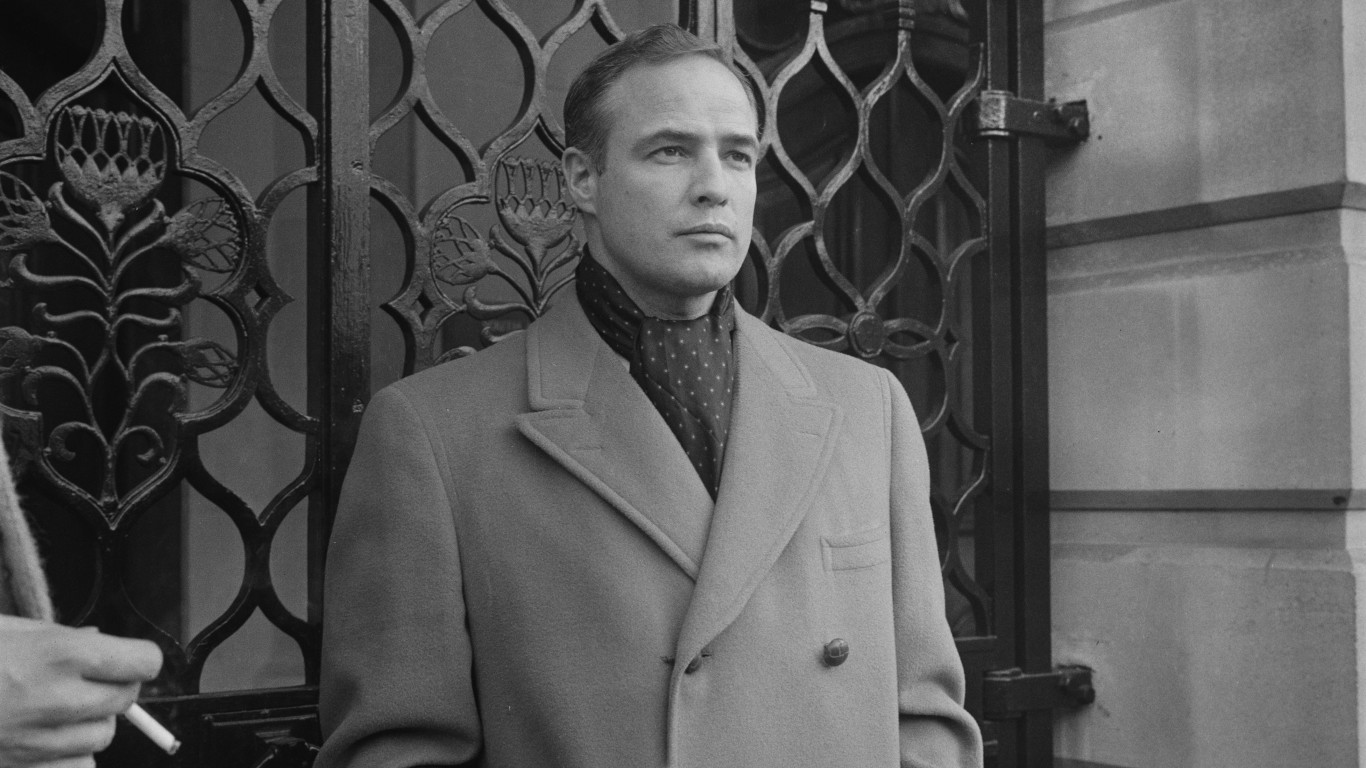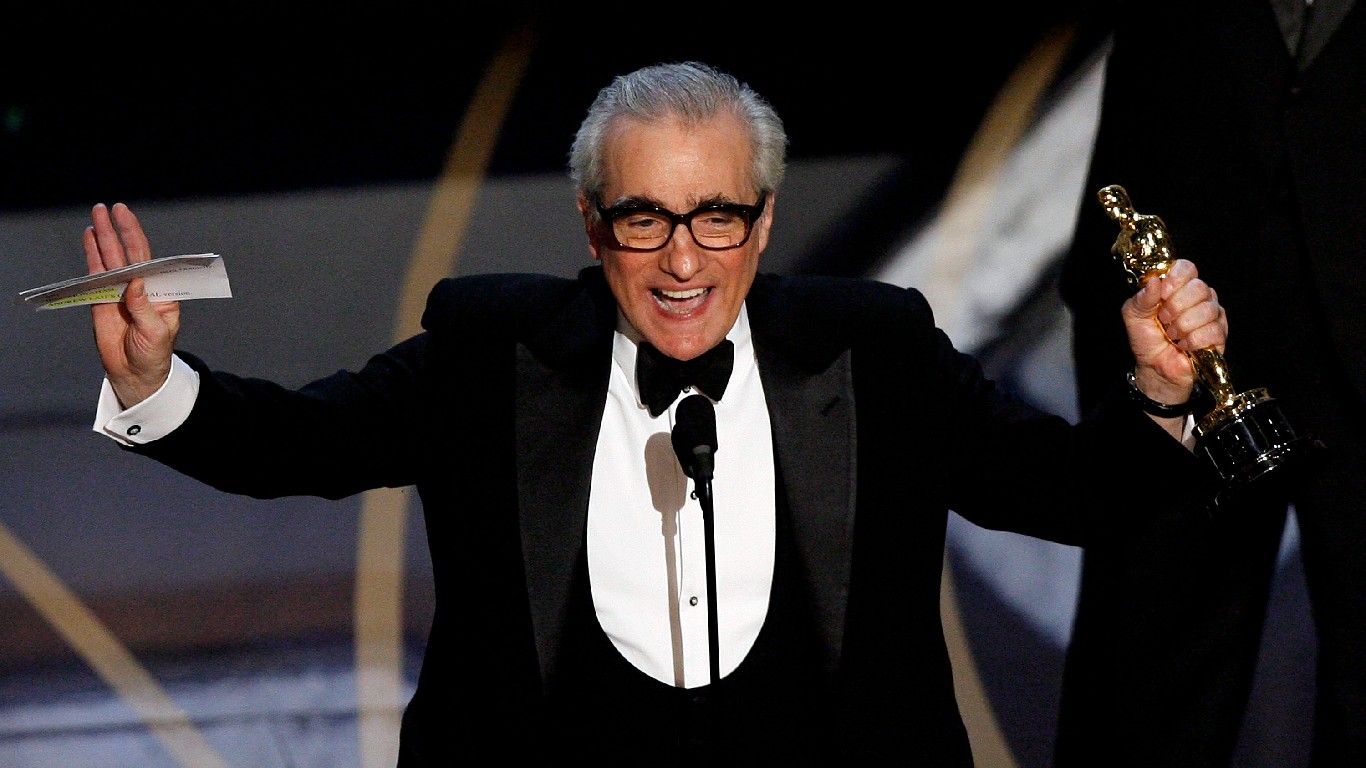
Its stars are a major reason why people attend a certain motion picture, but the real stars of cinema are the directors. That’s why their name is almost always the last credit on the screen before the movie begins.
Directors have to balance their vision of the film with actors’ interpretation of their roles, determine shooting locations and schedules, monitor budgets, and manage studio expectations. Because so many things can go wrong, making a profitable film is a daunting task. And in the end, whether a movie is a hit or not depends not on the critics but on the opinion of the filmgoing public, expressed at the box office.
To determine the directors with the most movie flops, 24/7 Tempo reviewed data on worldwide box office and production budget from film industry site The Numbers, a subsidiary of Nash Information Services. Directors were ranked based on the percentage of movies in their filmography that earned less than their production budget at the global box office.
Only directors with at least 10 movies for which production budget and worldwide box office data were available were considered. Biggest hits and flops are based on the average return on investment of $1 of production budget to money earned at the global box office.
Even though they have all basked in Oscar glory, directors Woody Allen, Martin Scorsese, Spike Lee, Ron Howard, Steven Soderbergh, and Ang Lee have all had flops. And despite critical recognition for the films “Stronger,” (David Gordon Green) “Me and Orson Welles,” (Richard Linklater), “Blow Out” (Brian De Palma), audiences mostly stayed away. (Here are some classic movies that flopped when they first came out.)
Click here to see a list of the directors with the most movie flops
At least 20% of the films directed by each of the directors on this list have brought in less than what they cost to produce – sometimes by a considerable margin. To be fair, all these directors have had more hits than misses, and across their careers have earned an average return on investment that exceeds their films’ total production costs. (Stars can be blamed for movie failures, too. Consider these A-list actors’ biggest box office flops.)
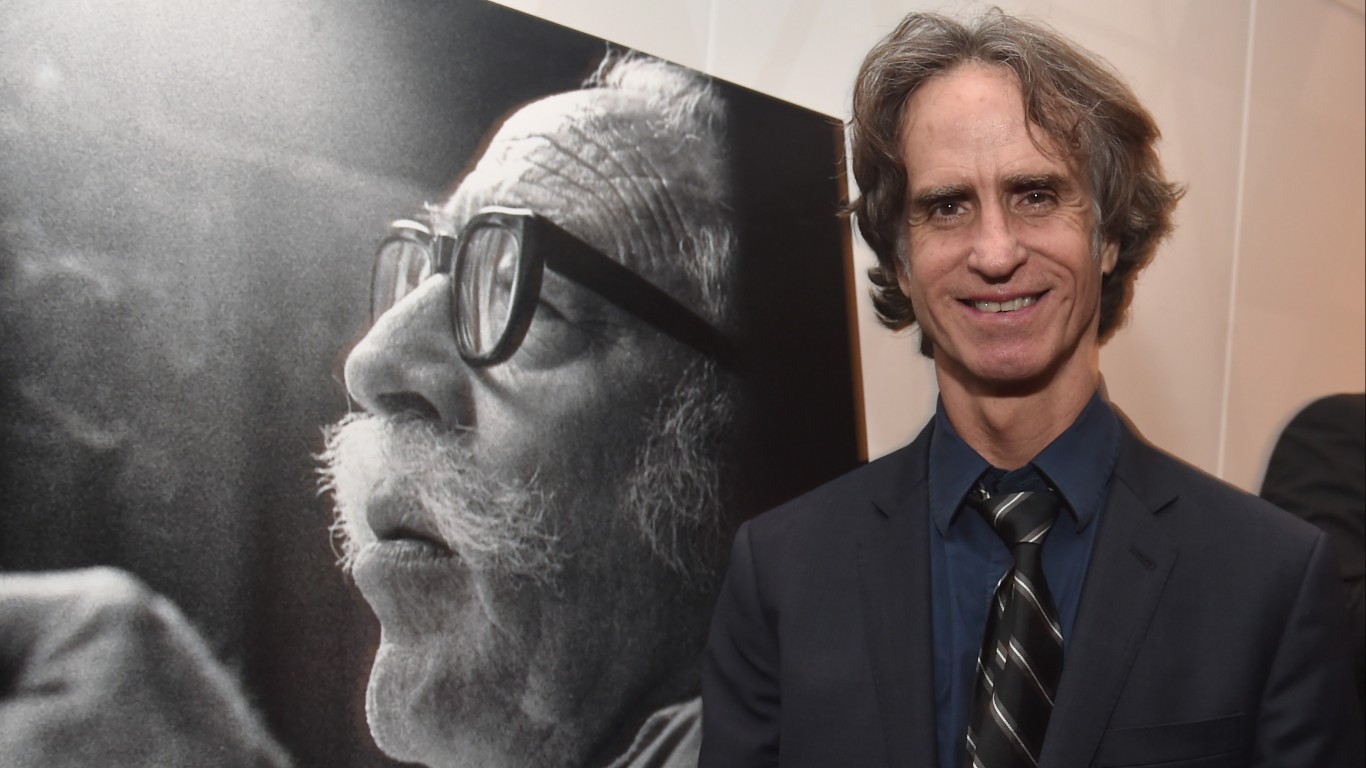
25. Jay Roach
> Pct. movies grossing less than production budget: 20.0%
> Avg. box office ROI: +$3.83 gross for every $1 of production budget
> Biggest hit: Austin Powers: The Spy Who Shagged Me (1999) ($312.4 million gross on $35.0 million budget)
> Biggest flop: Mystery, Alaska (1999) ($8.9 million gross on $28.0 million budget)
Jay Roach has enjoyed film success with the three “Austin Powers” movies and the three “Fockers” films. Five of those six grossed more than $100 million each at the box office. The average return on investment for Roach’s films is $3.83 gross for every $1 of production budget, one of the higher averages on this list. “Mystery, Alaska,” a film about a motley group of hockey players from the town in the title, was not the success Roach was hoping for, grossing just $8.9 million on a budget of $28 million.
[in-text-ad]

24. Rob Cohen
> Pct. movies grossing less than production budget: 20.0%
> Avg. box office ROI: +$2.11 gross for every $1 of production budget
> Biggest hit: The Boy Next Door (2015) ($53.4 million gross on $4.0 million budget)
> Biggest flop: Stealth (2005) ($76.4 million gross on $138.0 million budget)
Rotten Tomatoes characterized Rob Cohen as one of Hollywood’s “baby moguls” of the 1970s, enjoying success with movies featuring African-American actors, including “Mahogany,” and “The Bingo Long Traveling All-Stars and Motor Kings.” His film “Stealth,” about AI technology in a jet fighter gone haywire, was criticized as overly borrowing from “Top Gun” and “2001” and it failed at the box office.
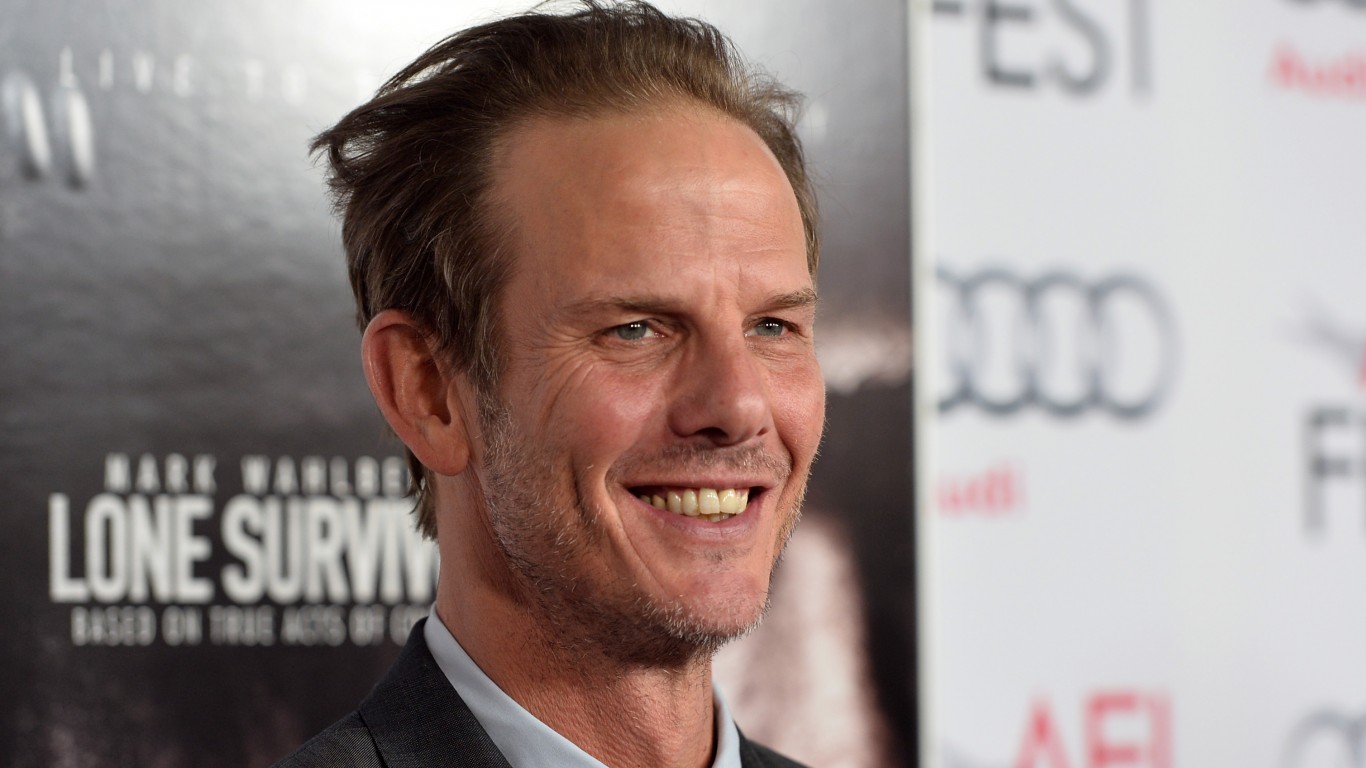
23. Peter Berg
> Pct. movies grossing less than production budget: 20.0%
> Avg. box office ROI: +$1.88 gross for every $1 of production budget
> Biggest hit: Hancock (2008) ($624.2 million gross on $150.0 million budget)
> Biggest flop: Deepwater Horizon (2016) ($122.6 million gross on $156.0 million budget)
Peter Berg’s greatest box-office achievement so far has been “Hancock,” starring Will Smith as a disheveled superhero. Berg also gained critical plaudits with the Afghanistan war story “Lone Survivor” with Mark Wahlberg, also a box-office success. Another Berg movie starring Wahlberg, “Deepwater Horizon,” about a real-life catastrophic oil-rig explosion in 2010, did not earn enough at the box office to cover its $156.0 million budget.

22. Sam Raimi
> Pct. movies grossing less than production budget: 25.0%
> Avg. box office ROI: +$3.44 gross for every $1 of production budget
> Biggest hit: The Evil Dead (1981) ($29.4 million gross on $375,000 budget)
> Biggest flop: The Quick and the Dead (1995) ($18.6 million gross on $32.0 million budget)
As a director, producer, and writer, Sam Raimi has made a career of scaring the wits our of audiences. Raimi made “The Evil Dead” – the start of a long-running franchise – on a budget of just $375,000, and the horror flick grossed $29.4 million at the box office. He also did well with his “Spider-Man” trilogy. Raimi’s venture into Westerns, “The Quick and the Dead,” had plenty of star power – Sharon Stone, Gene Hackman, Russell Crowe – but it failed to attract filmgoers.
[in-text-ad-2]
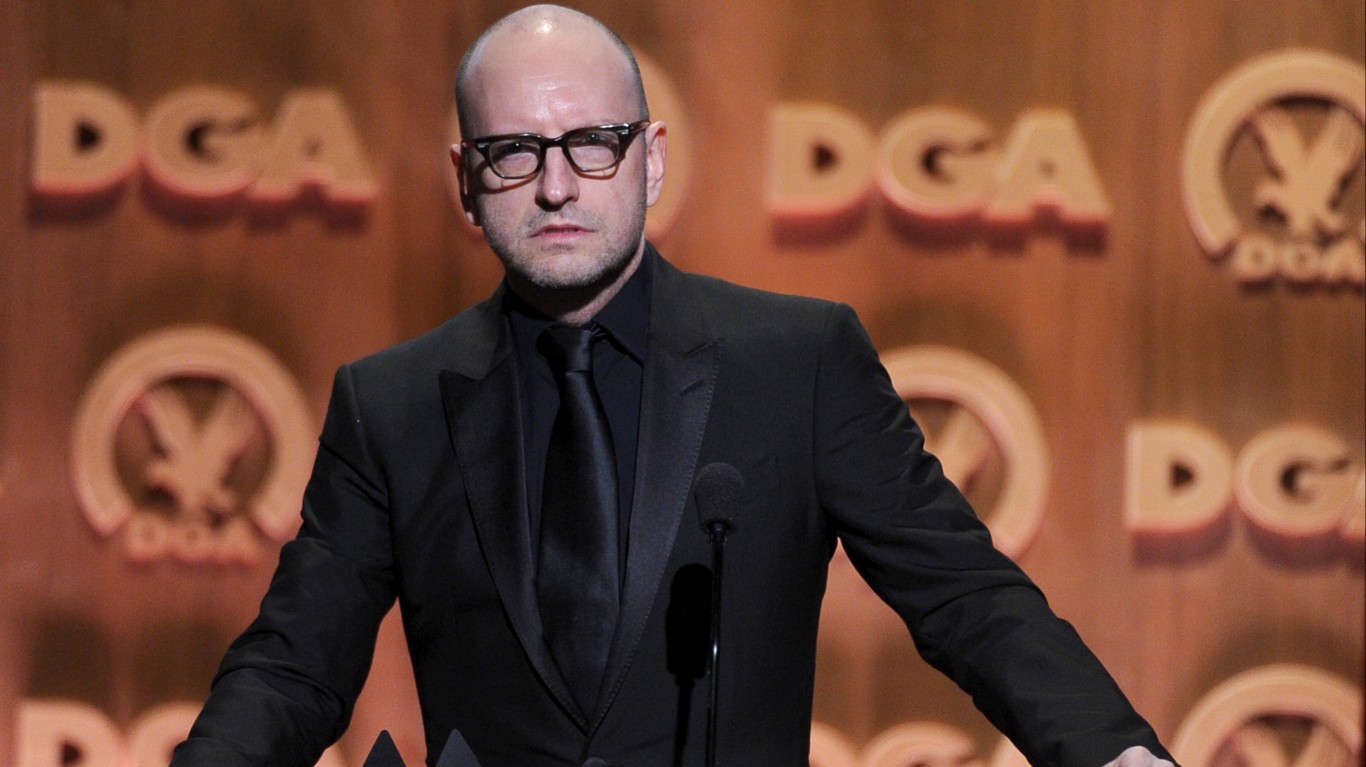
21. Steven Soderbergh
> Pct. movies grossing less than production budget: 25.0%
> Avg. box office ROI: +$3.25 gross for every $1 of production budget
> Biggest hit: Sex, Lies, and Videotape (1989) ($36.7 million gross on $1.2 million budget)
> Biggest flop: The Good German (2006) ($6.7 million gross on $32.0 million budget)
Steven Soderbergh’s breakthrough movie, “Sex, Lies, and Videotape,” in 1989 was also his most successful cinematic effort. Other hits followed, including “Erin Brockovich” and “Traffic,” the latter of which he won a Best Director Oscar. Soderbergh has had 11 movies achieve a Rotten Tomatoes Tomatometer score of more than 90%. Soderbergh’s homage to post-war noir films, “The Good German,” however, was a box-office disappointment.

20. Ron Howard
> Pct. movies grossing less than production budget: 25.0%
> Avg. box office ROI: +$2.61 gross for every $1 of production budget
> Biggest hit: Splash (1984) ($62.6 million gross on $8.0 million budget)
> Biggest flop: The Missing (2003) ($38.3 million gross on $65.0 million budget)
Ron Howard has had a skein of triumphs since his critically well-received film “Night Shift” in 1982, and his biggest hit, “Splash,” a rom-com starring Tom Hanks and Daryl Hannah, two years later. Eight of Howard’s films have grossed more than $100 million each. The Oscar winner (for “A Beautiful Mind”) and the man behind films such as “Apollo 13” and “Cocoon,” though, had a misfire with the Western “The Missing.”
[in-text-ad]
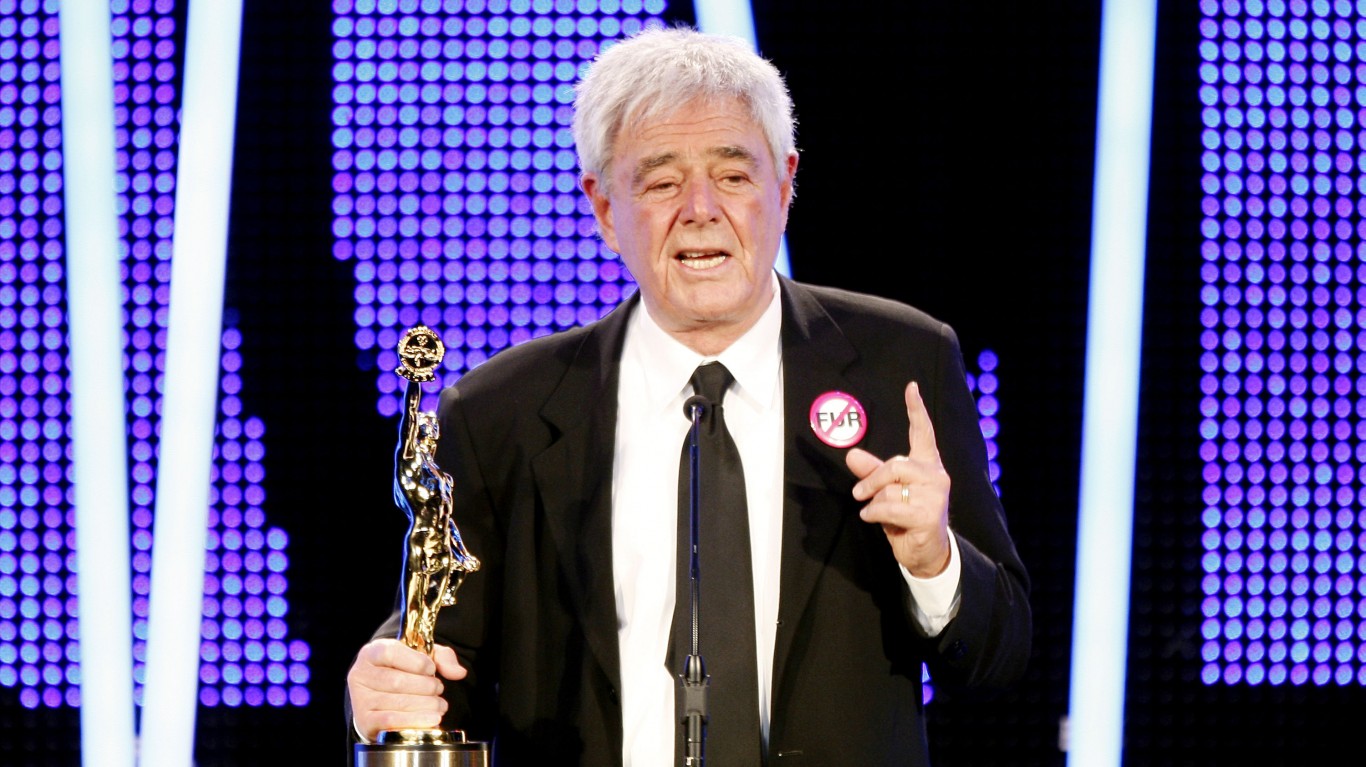
19. Richard Donner
> Pct. movies grossing less than production budget: 25.0%
> Avg. box office ROI: +$2.50 gross for every $1 of production budget
> Biggest hit: The Omen (1976) ($48.6 million gross on $2.8 million budget)
> Biggest flop: Radio Flyer (1992) ($4.7 million gross on $35.0 million budget)
With films such as “The Omen,” “Superman: The Movie,” and “Lethal Weapon,” Richard Donner was one of the top-grossing directors in the 1970s and 1980s. “Radio Flyer,” a drama about abused children who try to escape violence by focusing on their Radio Flyer wagon, flopped at the box office.
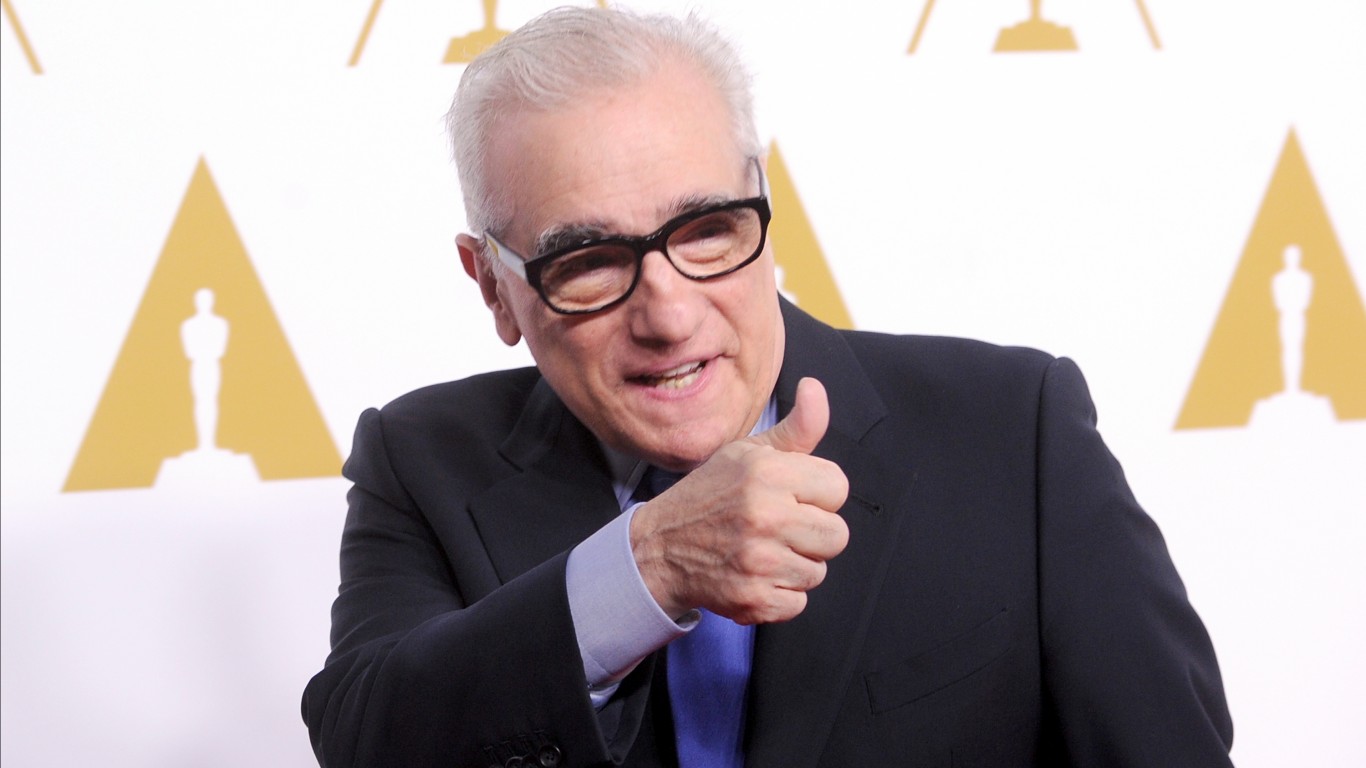
18. Martin Scorsese
> Pct. movies grossing less than production budget: 25.0%
> Avg. box office ROI: +$2.20 gross for every $1 of production budget
> Biggest hit: Shine a Light (2008) ($16.2 million gross on $1.0 million budget)
> Biggest flop: Kundun (1997) ($5.7 million gross on $28.0 million budget)
By the ratio of gross to budget, the greatest box-office success for Oscar winner Martin Scorsese (“The Departed”) has been the movie “Shine a Light,” a 2008 documentary about the Rolling Stones’ performance at New York’s Beacon Theatre. The maker of such monumental films as “Raging Bill” and “Taxi Driver” has had his misfires, too, however, such as “Kudun,” a portrait of the young Dalai Lama.
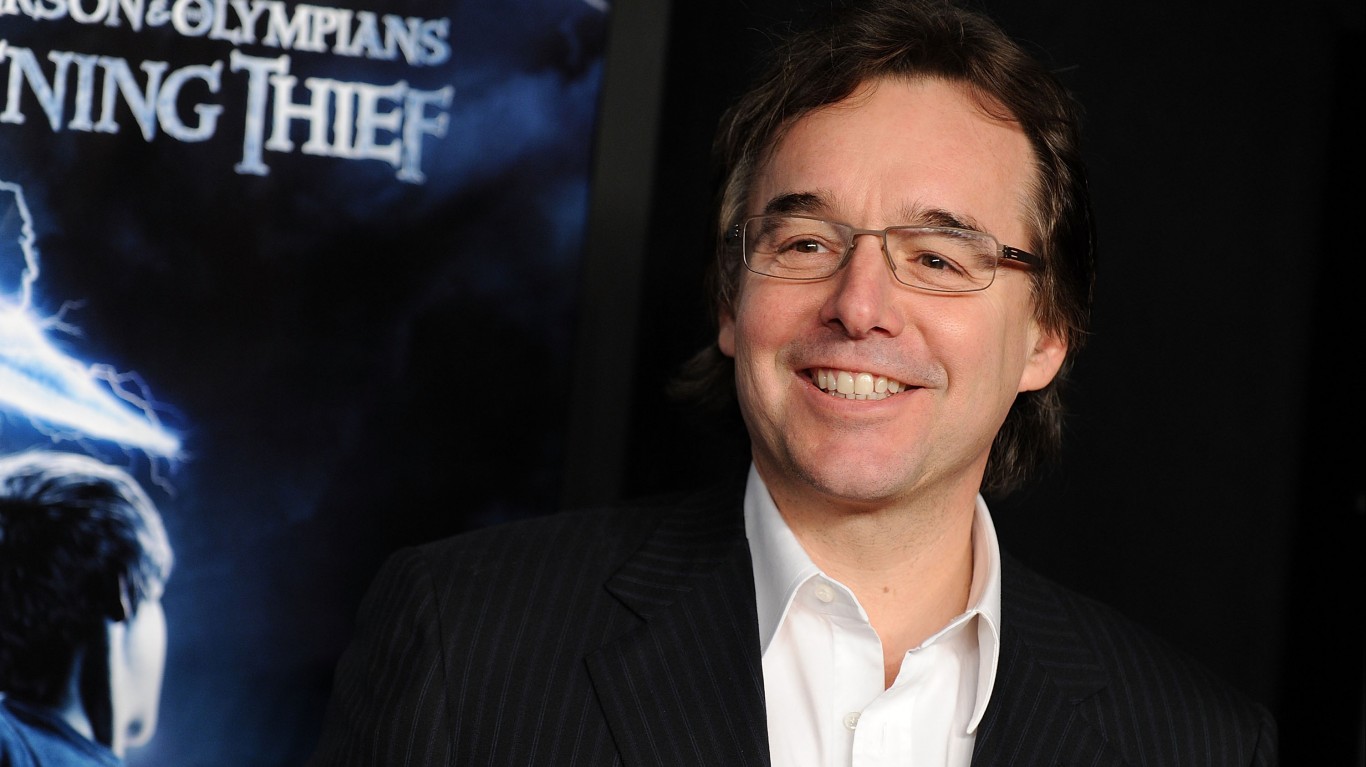
17. Chris Columbus
> Pct. movies grossing less than production budget: 27.3%
> Avg. box office ROI: +$5.81 gross for every $1 of production budget
> Biggest hit: Home Alone (1990) ($476.7 million gross on $15.0 million budget)
> Biggest flop: Rent (2005) ($31.7 million gross on $40.0 million budget)
Chris Columbus has the highest average box office return on investment of anyone on the list – $5.81 gross for every $1 of production budget. Thirteen of his efforts as director, producer, or executive producer have grossed more than $100 million apiece. These include the “Harry Potter,” “Home Alone,” “Night at the Museum,” and “Fantastic Four” films. “Rent,” based on the long-running Broadway musical of the same name, didn’t transfer its stage success to the big screen and was Columbus’ biggest disappointment.
[in-text-ad-2]
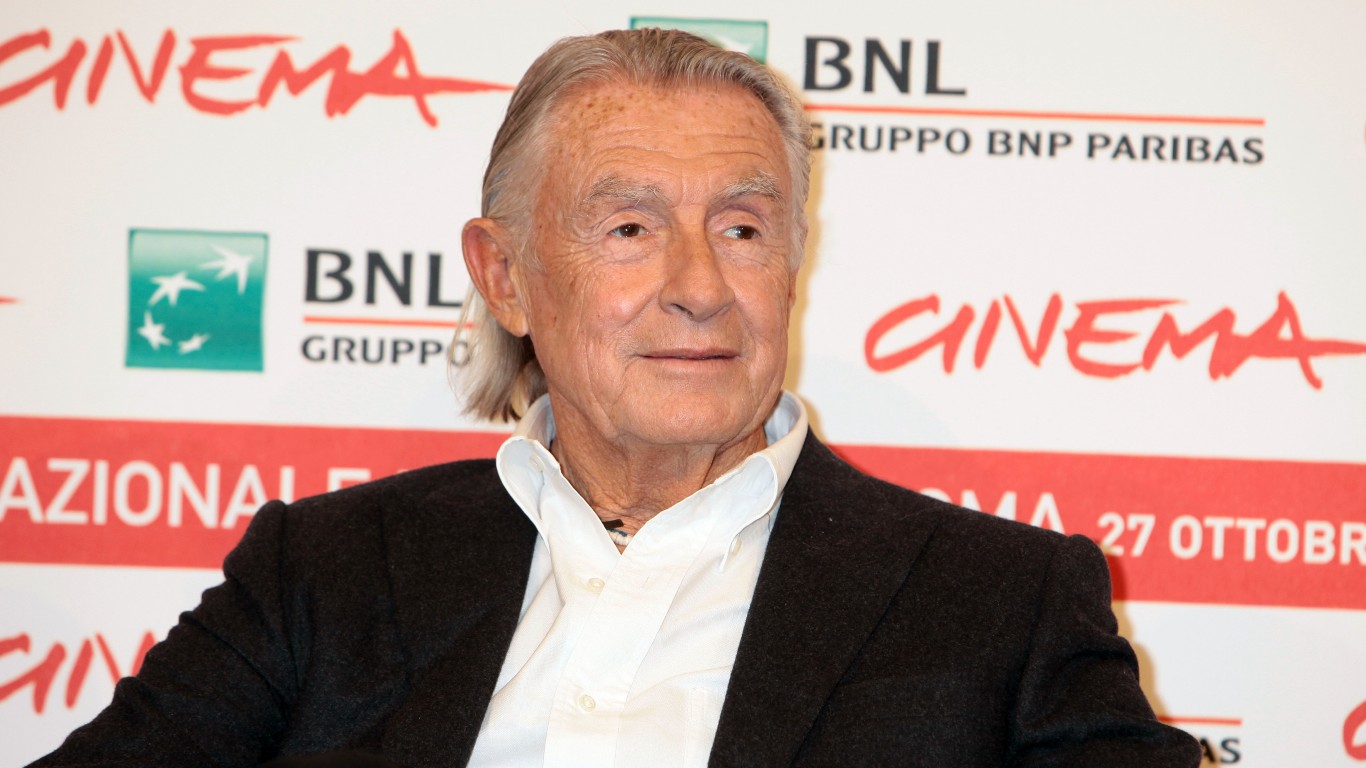
16. Joel Schumacher
> Pct. movies grossing less than production budget: 28.6%
> Avg. box office ROI: +$2.27 gross for every $1 of production budget
> Biggest hit: Phone Booth (2002) ($97.8 million gross on $11.0 million budget)
> Biggest flop: Flawless (1999) ($4.5 million gross on $27.0 million budget)
Joel Schumacher has given the filmgoing public action movies such as “Batman Forever” and “Batman & Robin,” and the disquieting films “A Time to Kill” and “Falling Down.” The heart-racing drama “Phone Booth,” starring Colin Farrell and Kiefer Sutherland, has been Schumacher’s biggest success, while “Flawless,” despite a cast that included Robert De Niro and Philip Seymour Hoffman, wasn’t.
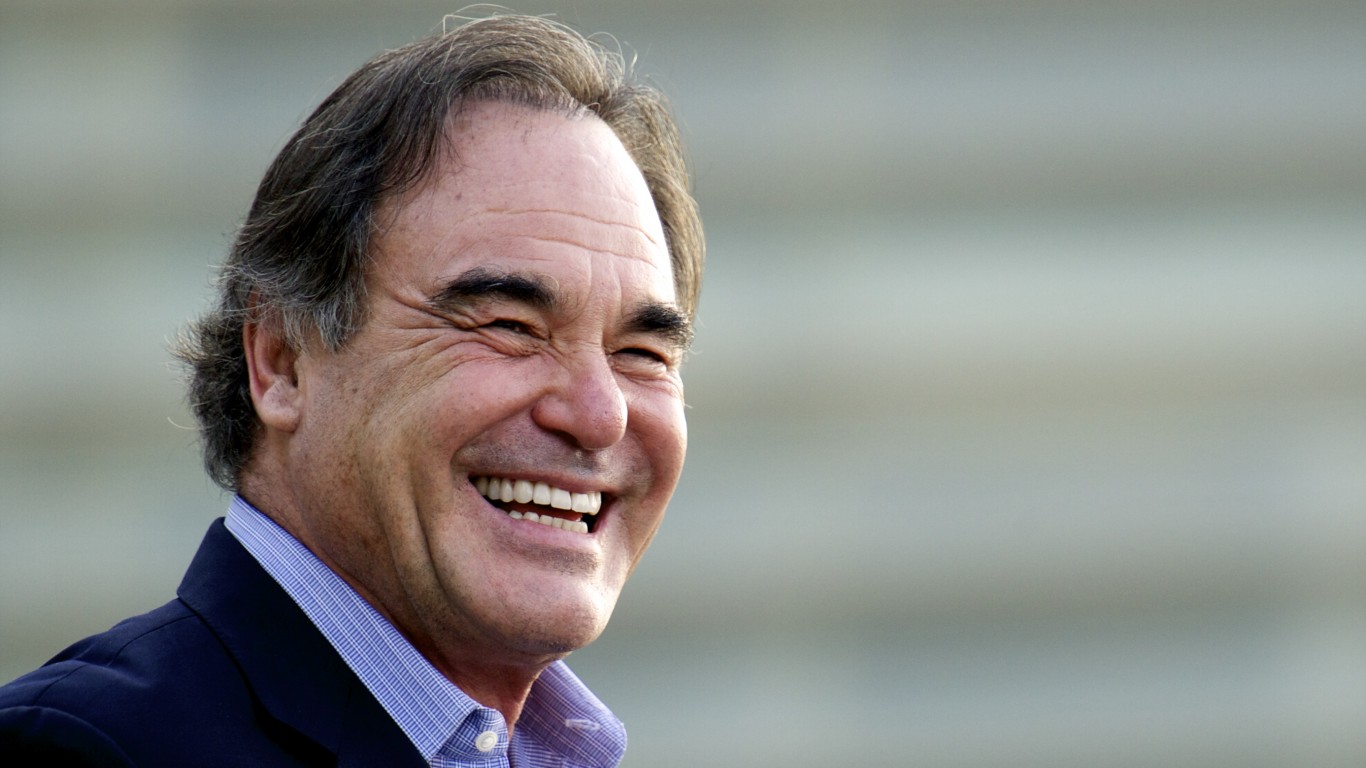
15. Oliver Stone
> Pct. movies grossing less than production budget: 28.6%
> Avg. box office ROI: +$2.05 gross for every $1 of production budget
> Biggest hit: Platoon (1986) ($138.0 million gross on $6.0 million budget)
> Biggest flop: Salvador (1986) ($1.5 million gross on $4.5 million budget)
Oliver Stone’s politically charged film career has involved films focusing on the turbulent 1960s, with movies such “JFK,” “The Doors,” “Born on the Fourth of July,” and “Platoon,” the latter of two of which won him Best Director Oscars. His film “Salvador,” despite critical acclaim from Rotten Tomatoes, who awarded it a Tomatometer score of 89%, failed to resonate with film audiences.
[in-text-ad]
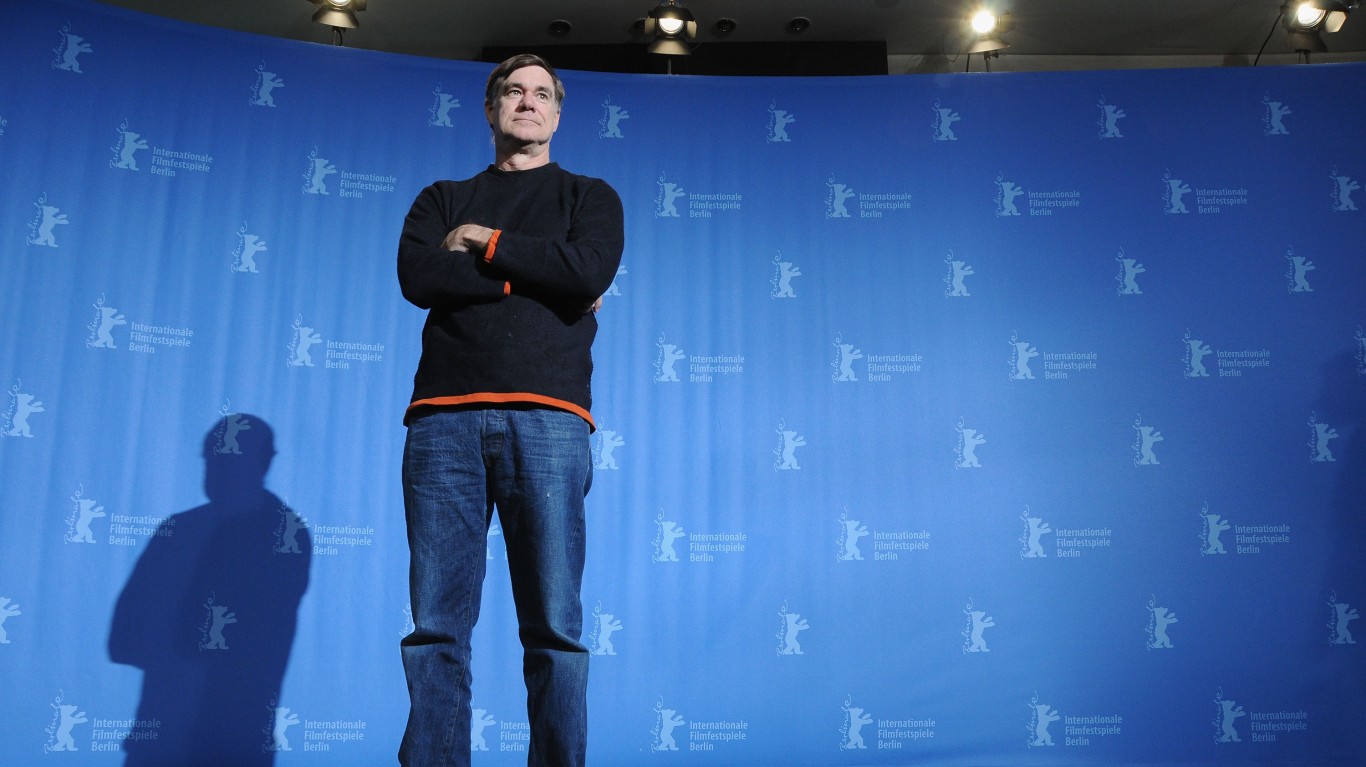
14. Gus Van Sant
> Pct. movies grossing less than production budget: 30.0%
> Avg. box office ROI: +$3.10 gross for every $1 of production budget
> Biggest hit: Good Will Hunting (1997) ($225.9 million gross on $10.0 million budget)
> Biggest flop: Restless (2011) ($2.8 million gross on $8.0 million budget)
Gus Van Sant made his film mark with films focusing on the seamier side of society (“Drugstore Cowboy,” “My Own Private Idaho”) and marginalized groups (“Milk”). His greatest box-office triumph was “Good Will Hunting,” about a brilliant but troubled young man, which earned Best Writing Oscars for co-stars Matt Damon and Ben Affleck. “Restless,” a fantasy about a young man who interacts with the ghost of a kamikaze pilot and falls in love with a terminally ill young woman, failed to connect with filmgoers.
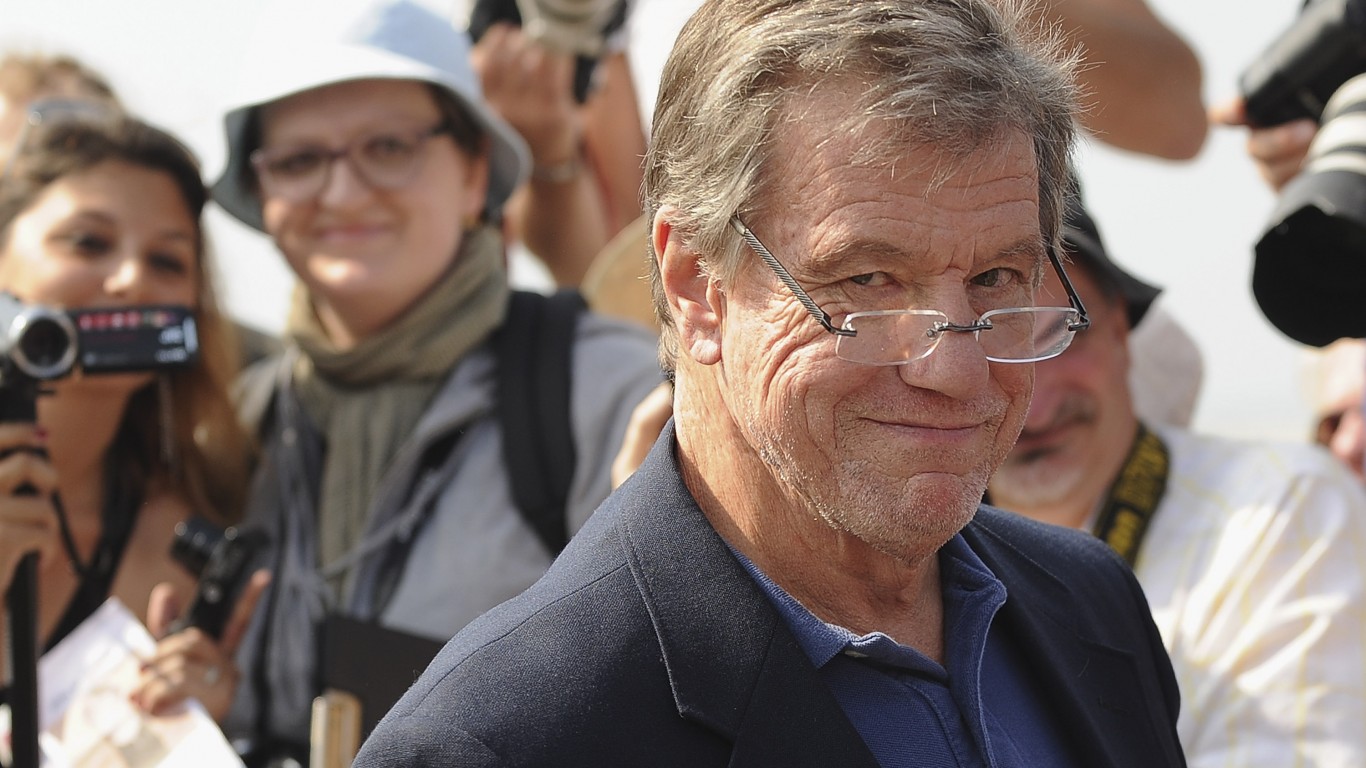
13. John McTiernan
> Pct. movies grossing less than production budget: 30.0%
> Avg. box office ROI: +$2.13 gross for every $1 of production budget
> Biggest hit: The Hunt for Red October (1990) ($200.5 million gross on $30.0 million budget)
> Biggest flop: Rollerball (2002) ($25.9 million gross on $70.0 million budget)
John McTiernan is one of Hollywood’s premier action-film helmsmen, numbering the “Die Hard” films, “Predator,” and “Last Action Hero” among his works. Powered by an A-list cast of Sean Connery, Alec Baldwin, and James Earl Jones, McTiernan’s “The Hunt for Red October” has been his biggest box-office smash to date. His remake of “Rollerball” in 2002 turned into a misfire, failing to cover the $70 million budget.

12. Paul W.S. Anderson
> Pct. movies grossing less than production budget: 30.0%
> Avg. box office ROI: +$1.92 gross for every $1 of production budget
> Biggest hit: Mortal Kombat (1995) ($122.1 million gross on $20.0 million budget)
> Biggest flop: Soldier (1998) ($14.6 million gross on $75.0 million budget)
English director Paul W.S. Anderson announced himself to the British cinema industry with his excessively brutal film “Shopping,” about ultra-violent thieves, which was banned in many English theaters. Anderson went on to make the “Resident Evil” movies as well as “Alien vs. Predator.” A self-described obsessed video gamer. Anderson channeled that compulsion into making a film version of the violent game “Mortal Kombat,” which has been his greatest box-office success. The same cannot be said for his film “Soldier,” which grossed just $14.6 million on a $75 million budget.
[in-text-ad-2]

11. Woody Allen
> Pct. movies grossing less than production budget: 31.8%
> Avg. box office ROI: +$2.76 gross for every $1 of production budget
> Biggest hit: Scoop (2006) ($40.1 million gross on $4.0 million budget)
> Biggest flop: Celebrity (1998) ($6.2 million gross on $12.0 million budget)
We know four-time Oscar-winner Woody Allen for romps like “Bananas” and “Sleeper,” stories of neurotic New Yorkers such as “Manhattan” and “Annie Hall,” and period comedies like “Bullets Over Broadway.” His biggest box-office triumph is “Scoop,” about an American journalism student who communicates with a deceased reporter to try and break a story. “Celebrity,” Allen’s unflattering look at fame in New York’s swankiest quarters, did not engage audiences.
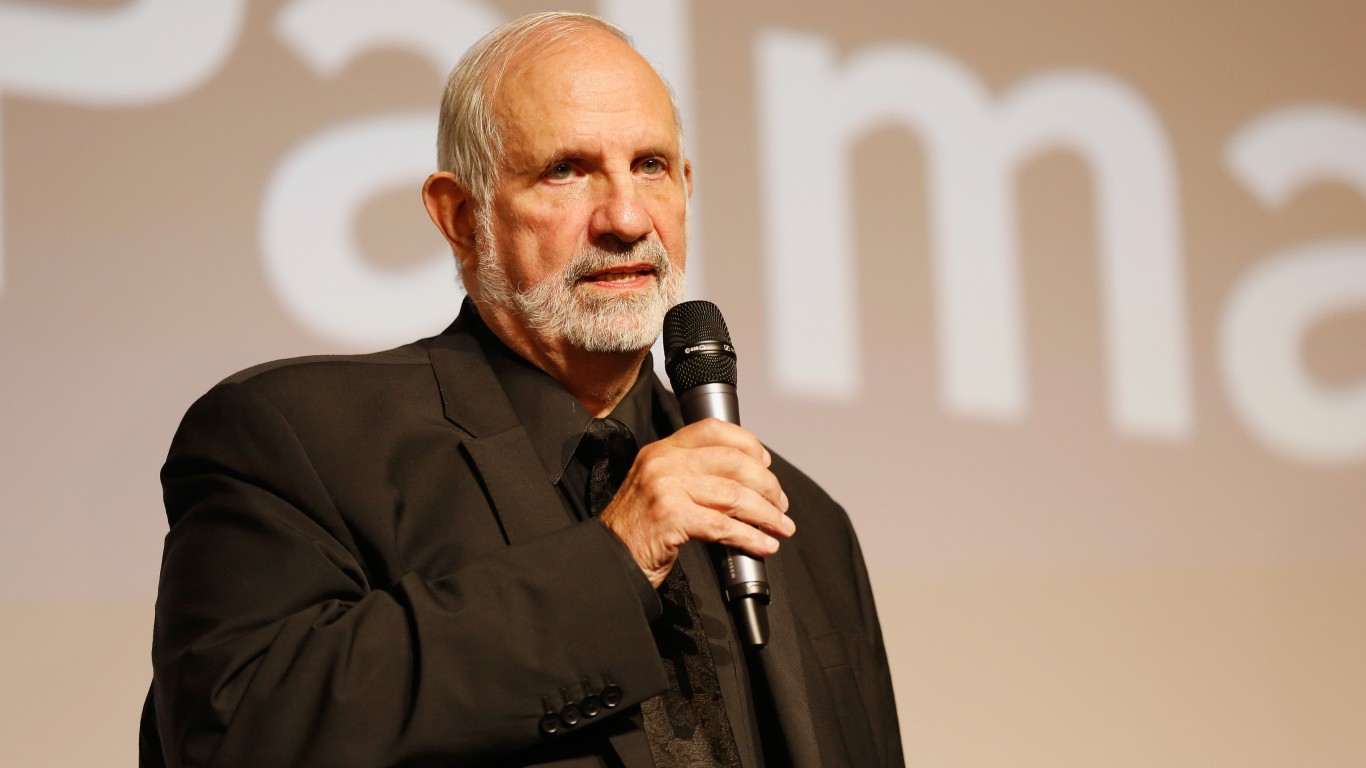
10. Brian De Palma
> Pct. movies grossing less than production budget: 33.3%
> Avg. box office ROI: +$2.32 gross for every $1 of production budget
> Biggest hit: Carrie (1976) ($25.9 million gross on $1.8 million budget)
> Biggest flop: Blow Out (1981) ($13.7 million gross on $18.0 million budget)
A director whose style and subject matter have been influenced by Alfred Hitchcock, Dre Palma enjoyed success starting in the 1970s and 1980s with films like “Body Double,” “Carlito’s Way,” and “Mission: Impossible.” His breakthrough effort was the paranormal horror flick “Carrie” in 1976, which made a star out of Sissy Spacek. “Blow Out,” inspired by Michelangelo Antonioni’s classic “Blow Up,” and starring John Travolta and Nancy Allen, was hailed by critics as a glossy, politically informed thriller, but audiences mostly stayed away
[in-text-ad]

9. Kevin Smith
> Pct. movies grossing less than production budget: 33.3%
> Avg. box office ROI: +$1.69 gross for every $1 of production budget
> Biggest hit: Clerks (1994) ($3.9 million gross on $27,000 budget)
> Biggest flop: Mallrats (1995) ($2.1 million gross on $6.1 million budget)
New Jersey native Kevin Smith has made it a point to feature his home state in most of his movies. He made the first of two “Clerks” films – about aimless suburban convenience-store workers – on a shoestring budget of $27,000. It won awards at both the Cannes and Sundance film festivals. Smith was seen as a champion of Generation X. He added to his cinematic success with “Chasing Amy.” With “Mallrats” he returned to the suburban angst theme but audiences failed to return with him.
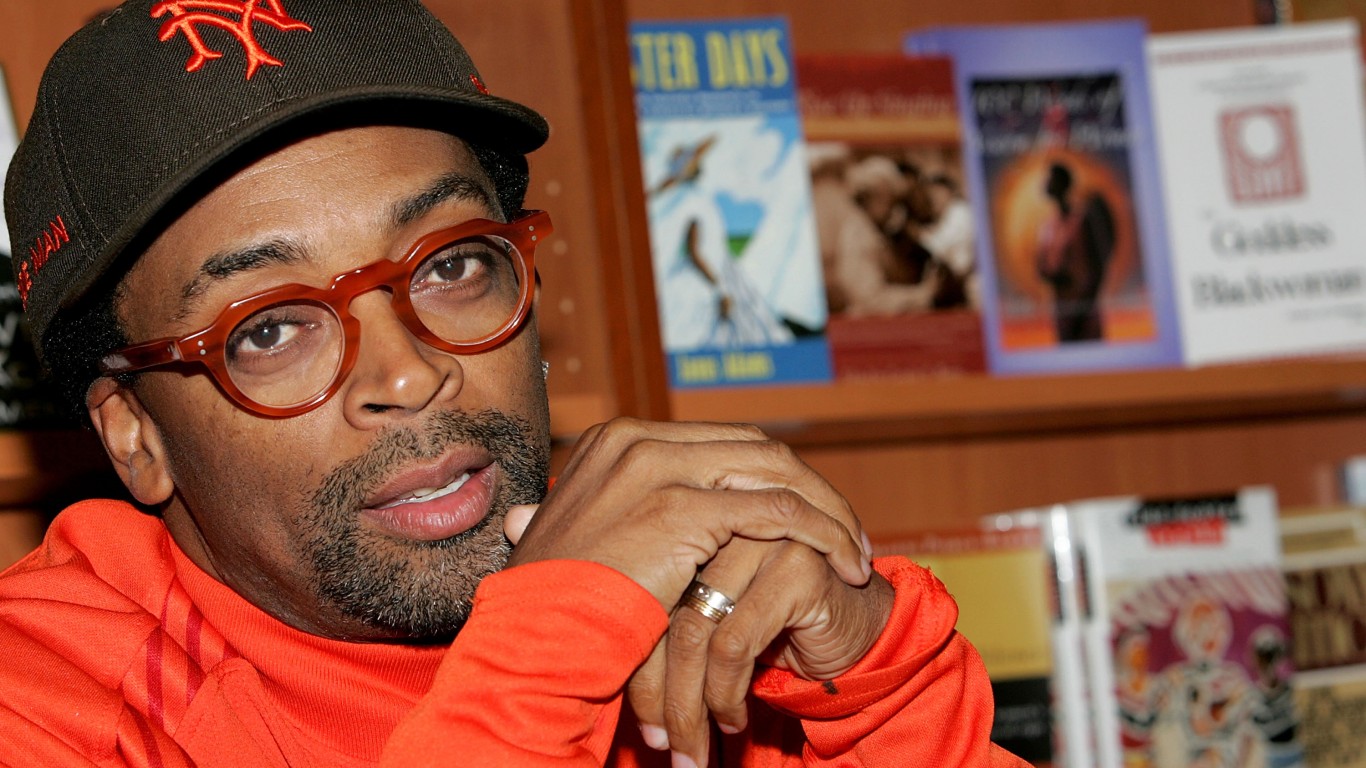
8. Spike Lee
> Pct. movies grossing less than production budget: 37.5%
> Avg. box office ROI: +$2.05 gross for every $1 of production budget
> Biggest hit: She’s Gotta Have It (1986) ($7.1 million gross on $175,000 budget)
> Biggest flop: Miracle at St. Anna (2008) ($9.7 million gross on $45.0 million budget)
Filmdom’s Oscar-winning provocateur, whose motion pictures gave dimension to Black life in America and who wasn’t afraid to point out inequality in society (“Do the Right Thing,” “Jungle Fever”), had a surprising hit in 1986 with critically lauded “She’s Gotta Have It.” The movie was made on a budget of $175,000. Lee made “Miracle at St. Anna” in 2008 about soldiers in an all-Black division fighting in Italy in WWII that critics found disjointed, and it flopped at the box office.

7. Ang Lee
> Pct. movies grossing less than production budget: 40.0%
> Avg. box office ROI: +$2.86 gross for every $1 of production budget
> Biggest hit: Crouching Tiger, Hidden Dragon (2000) ($213.5 million gross on $15.0 million budget)
> Biggest flop: Ride with the Devil (1999) ($630,779 gross on $35.0 million budget)
Ang Lee won the first of his two Best Director Academy Awards for “Brokeback Mountain” in 2006, becoming the first Asian filmmaker to win an Oscar for directing. The martial-arts movie “Crouching Tiger, Hidden Dragon” received a 97% score from Rotten Tomatoes critics and vaulted Lee into the rarefied air of elite Hollywood directors, and it remains his greatest box-office triumph thus far. Lee’s 2006 Civil War motion picture “Ride With the Devil” was a major disappointment, grossing about $630,000 on a budget of $35 million.
[in-text-ad-2]
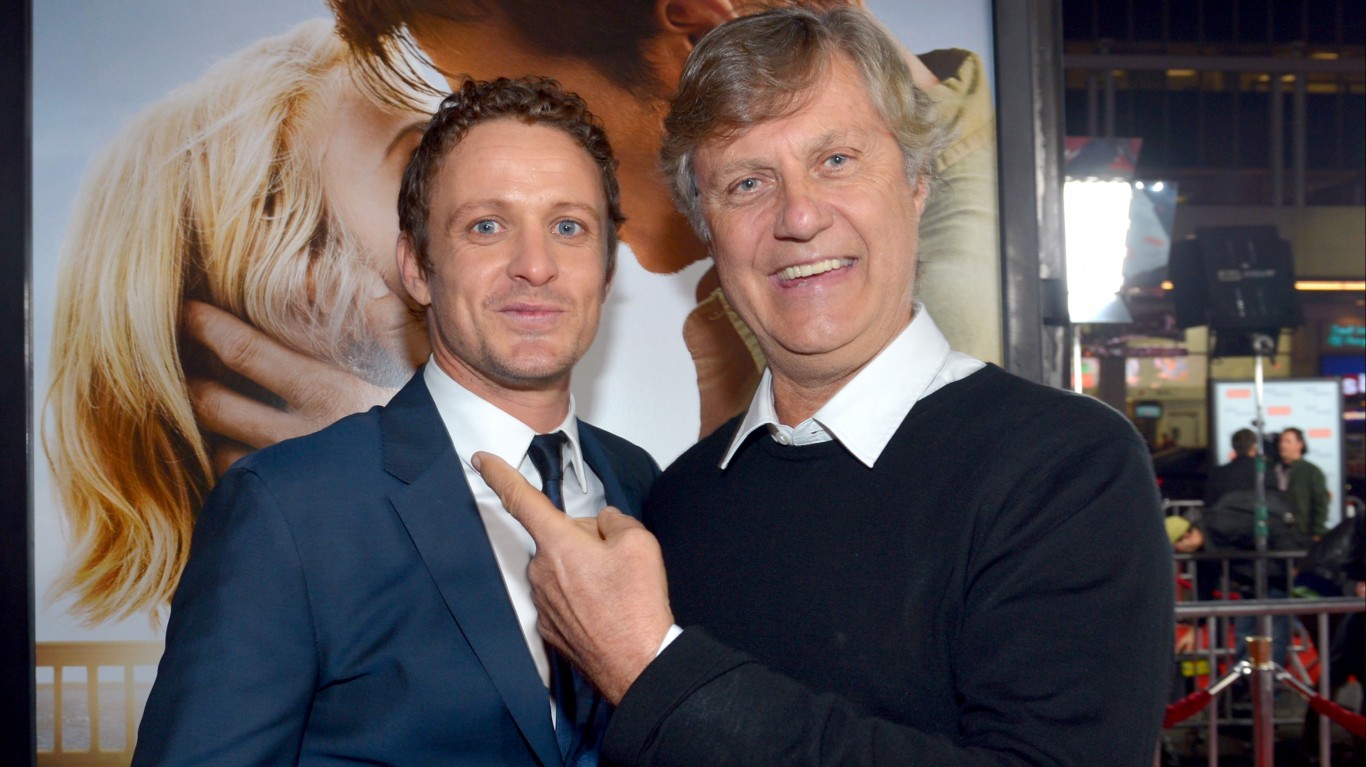
6. Lasse Hallström
> Pct. movies grossing less than production budget: 40.0%
> Avg. box office ROI: +$2.55 gross for every $1 of production budget
> Biggest hit: A Dog’s Purpose (2017) ($203.1 million gross on $25.0 million budget)
> Biggest flop: The Hoax (2006) ($7.2 million gross on $25.0 million budget)
After making videos for the Swedish pop group ABBA, Lasse Hallström gained international fame with his film “My Life as a Dog” in 1985. He burnished his filmmaking credentials with critically acclaimed films such as “What’s Eating Gilbert Grape,” “Chocolat,” “Dear John,” and “The Cider House Rules.” “A Dog’s Purpose,” in which a canine discovers the meaning of its own existence when he is repeatedly reincarnated, is Hallström‘s most successful movie to date. “The Hoax,” based on Clifford Irving’s fake biography of reclusive millionaire Howard Hughes, found favor among Rotten Tomatoes critics, but disappointed at the box office.
5. Barry Levinson
> Pct. movies grossing less than production budget: 42.9%
> Avg. box office ROI: +$2.92 gross for every $1 of production budget
> Biggest hit: Rain Man (1988) ($412.8 million gross on $25.0 million budget)
> Biggest flop: Rock the Kasbah (2015) ($3.4 million gross on $15.0 million budget)
Barry Levinson has been nominated six times for an Academy Award and in 1989 took home the statue for Best Director for “Rain Man,” starring Dustin Hoffman and Tom Cruise. It is his most successful film to date. Levinson’s other noteworthy movies include “Wag the Dog,” “Sleepers,” and “Good Morning, Vietnam.” His magic touch apparently deserted him in “Rock the Kasbah,” his biggest flop to date, registering a Rotten Tomatoes Tomatometer score of just 7%.
[in-text-ad]

4. Rob Reiner
> Pct. movies grossing less than production budget: 46.2%
> Avg. box office ROI: +$2.07 gross for every $1 of production budget
> Biggest hit: A Few Good Men (1992) ($236.5 million gross on $33.0 million budget)
> Biggest flop: LBJ (2016) ($2.5 million gross on $20.0 million budget)
Rob Reiner, the son of one of television’s great talents, emerged as a skilled actor and director in his own right. The younger Reiner found his niche in rom-coms with some black comedy mixed in early in his directing career. He’s helmed four films that have a Rotten Tomatoes Tomatometer score of 90% or above. “A Few Good Men” is not in that rarefied zone, but it is Reiner’s biggest hit to date. “LBJ,” a biopic of the nation’s 36th president that starred Woody Harrelson in the title role, tanked at the box office and disappointed critics.
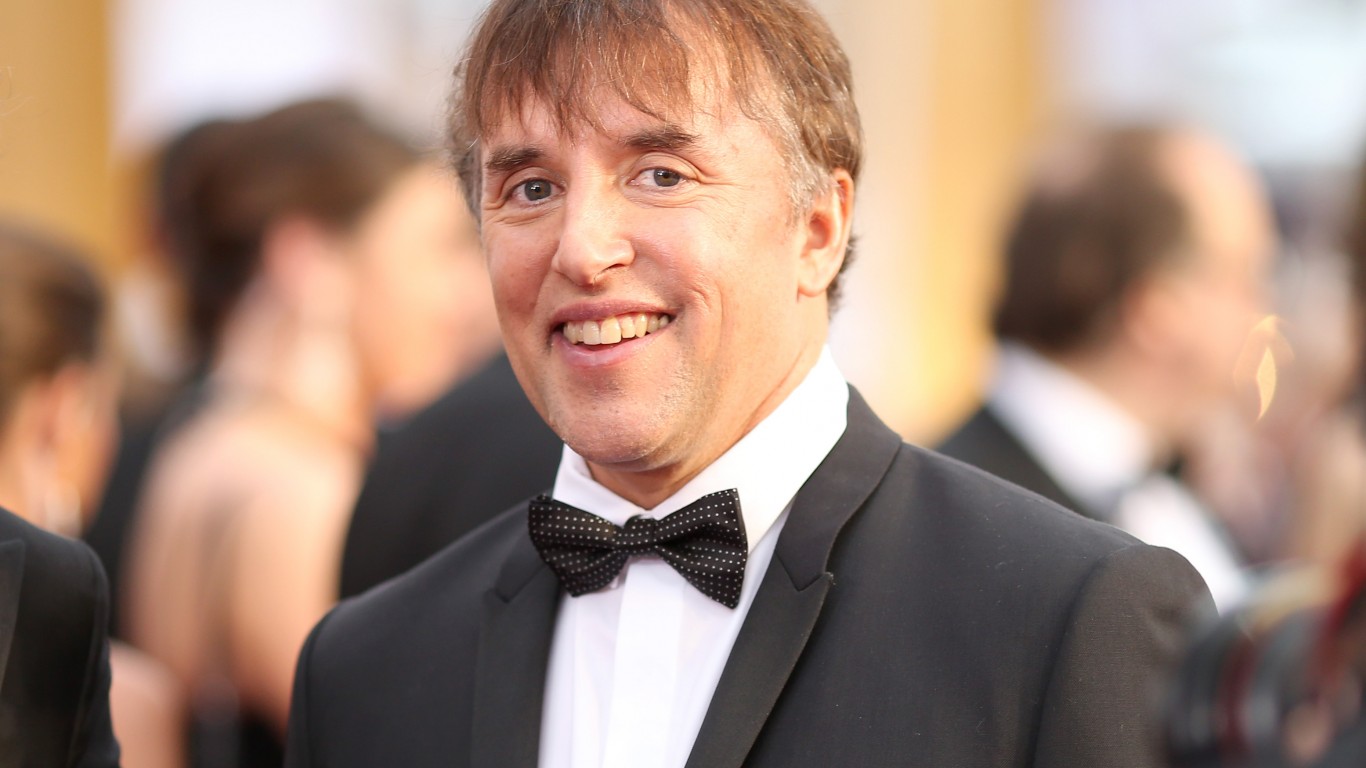
3. Richard Linklater
> Pct. movies grossing less than production budget: 46.2%
> Avg. box office ROI: +$1.74 gross for every $1 of production budget
> Biggest hit: Boyhood (2014) ($57.3 million gross on $4.0 million budget)
> Biggest flop: Me and Orson Welles (2008) ($1.2 million gross on $25.0 million budget)
Richard Linklater became closely associated with Generation X through movies such as “Slackers.” His “Boyhood,” a deep dive into the highs and lows of growing up, starring Patricia Arquette and Ethan Hawke, received a Rotten Tomatoes Tomatometer score of 97%. To date, it is his most successful movie and one of six films directed by Linklater that have an RT score of 90% and above. One film not quite in that honored group is “Me and Orson Welles,” which managed to gross just $1.2 million at the box office on a budget of $25 million.
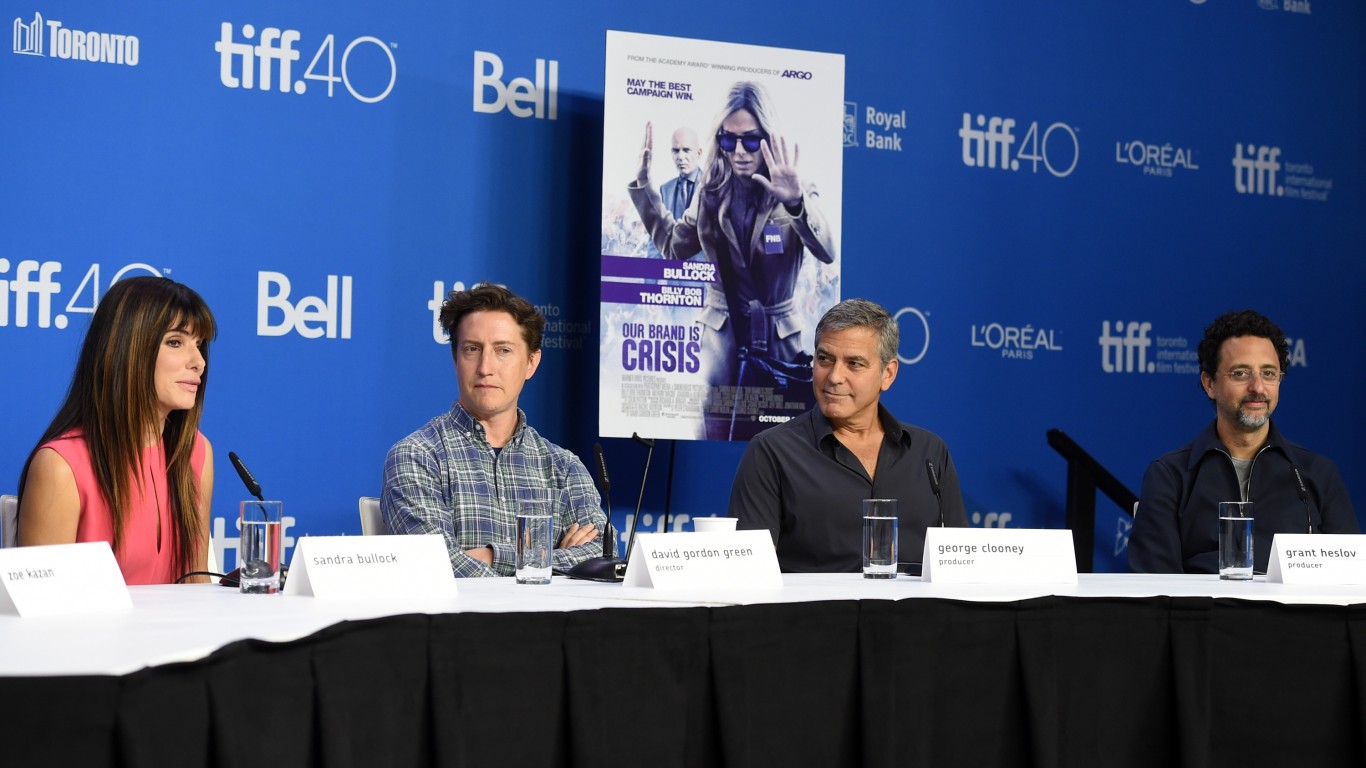
2. David Gordon Green
> Pct. movies grossing less than production budget: 63.6%
> Avg. box office ROI: +$2.47 gross for every $1 of production budget
> Biggest hit: Halloween (2018) ($255.4 million gross on $10.0 million budget)
> Biggest flop: Stronger (2017) ($8.8 million gross on $30.0 million budget)
Rotten Tomatoes describes David Gordon Green’s early directing style as Southern Gothic, citing films such as “George Washington” and “All the Real Girls.” He transitioned to comedy and found commercial success with “Pineapple Express” starring James Franco and Seth Rogen as stoners on the run. Green’s greatest box-office hit was “Halloween” (2018), which brought back Jamie Lee Curtis in the role of Laurie Strode, which she had first made famous 40 years earlier. “Stronger,” based on the inspirational story of Jeff Bauman, who lost his legs during a terrorist attack at the Boston Marathon, won over critics with a Rotten Tomatoes score of 90%, but not filmgoers.
[in-text-ad-2]

1. Renny Harlin
> Pct. movies grossing less than production budget: 64.3%
> Avg. box office ROI: +$1.47 gross for every $1 of production budget
> Biggest hit: Cliffhanger (1993) ($255.0 million gross on $65.0 million budget)
> Biggest flop: Cutthroat Island (1995) ($18.5 million gross on $92.0 million budget)
Renny Harlin is the most successful – and one of the few – Finnish directors working in Hollywood. He directed the fourth installment of the Nightmare series, “Nightmare on Elm Street 4: The Dream Master” – a lucrative endeavor. He soon gained a reputation as an action-film director. His efforts included “Die Hard 2” and “Cliffhanger” in 1993, the latter of which is the most successful movie thus far in his career. Two years after “Cliffhanger,” he made “Cutthroat Island,” a pirate saga starring his then-wife, Geena Davis, which was a major flop at the box office.
Are You Ahead, or Behind on Retirement? (sponsor)
If you’re one of the over 4 Million Americans set to retire this year, you may want to pay attention. Many people have worked their whole lives preparing to retire without ever knowing the answer to the most important question: are you ahead, or behind on your retirement goals?
Don’t make the same mistake. It’s an easy question to answer. A quick conversation with a financial advisor can help you unpack your savings, spending, and goals for your money. With SmartAsset’s free tool, you can connect with vetted financial advisors in minutes.
Why wait? Click here to get started today!
Thank you for reading! Have some feedback for us?
Contact the 24/7 Wall St. editorial team.
